Main missions
The Radioprotection Engineer develops and implements radioprotection programs for nuclear facilities, ensuring that all activities are carried out in compliance with current regulations and industry best practices.
He/She conducts radiological risk assessments, monitors radiation levels, and analyzes data to identify potential risk areas. He/She proposes corrective and preventive measures to minimize radiation exposure.
The Radioprotection Engineer trains and raises awareness among staff about radioprotection practices and the use of protective equipment. He/She works closely with safety teams and regulatory authorities to ensure a safe working environment that complies with radioprotection standards.
Job activities
-
Development of Radioprotection Programs: Develop and implement radioprotection programs to ensure the safety of workers and the public.
-
Radiological Risk Assessment: Conduct radiological risk assessments and monitor radiation levels to identify risk areas.
-
Analysis of Radiological Data: Analyze radiation monitoring data and propose corrective and preventive measures.
-
Training and Awareness: Train and raise awareness among staff about radioprotection practices and the use of protective equipment.
-
Collaboration with Safety Teams: Collaborate with safety teams to implement protection measures and emergency procedures.
-
Regulatory Compliance: Ensure compliance with current radioprotection standards and regulations.
-
Reporting and Documentation: Prepare reports on radiation levels, radiological incidents, and measures taken to minimize risks.
-
Audit and Inspection: Participate in audits and inspections of facilities to evaluate the effectiveness of radioprotection programs.
Required skills
A Radioprotection Engineer in the nuclear energy sector should possess the following skills:
- In-depth knowledge of radioprotection principles and practices.
- Mastery of radioprotection regulations and standards.
- Skills in radiological risk assessment and management.
- Ability to analyze data and propose corrective measures.
- Aptitude for training and raising awareness about radioprotection.
- Communication and collaboration skills with safety teams.
- Ability to write technical reports and compliance documents.
- Strong sense of safety and risk prevention.
Other Installation & Commissioning Jobs
-
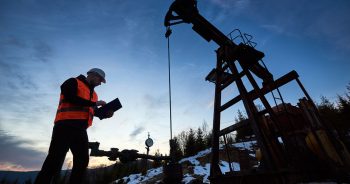
Drilling Superintendent – Oil and Gas Jobs – Energy Consultant
A Drilling Superintendent in the oil and gas industry plays a critical role in ensuring the success, safety, and efficiency of drilling operations. They combine technical expertise, leadership skills, and regulatory knowledge to manage drilling projects from conception to completion.
-

Operations Manager – Nuclear Energy Jobs
The Operations Manager in the nuclear energy sector is responsible for managing and overseeing all operations of nuclear facilities. He/She ensures the efficiency, safety, and regulatory compliance of operations, ensuring the smooth functioning of nuclear power plants.
-
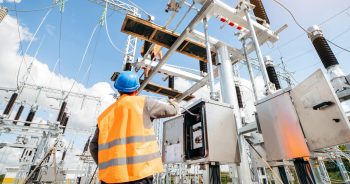
Outage Maintenance Power Generation Engineer – Nuclear Energy Jobs
The Outage Maintenance Power Generation Engineer in the nuclear energy sector is responsible for planning, coordinating, and supervising maintenance activities during scheduled outages of nuclear power plants. He/She ensures that the power generation equipment is maintained in optimal working condition while adhering to safety standards and regulatory requirements.
-
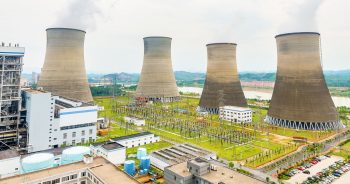
Logistics Supervisor – Nuclear Energy Jobs
The Logistics Supervisor in the nuclear energy sector is responsible for managing and coordinating logistical activities to ensure the availability and efficient distribution of materials, equipment, and supplies necessary for the smooth operation of nuclear power plants. He/She ensures that logistical operations comply with safety standards and regulatory requirements.
-
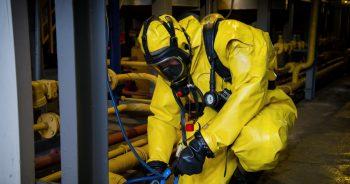
Radiation Protection Supervisor – Maintenance – Nuclear Energy Jobs
The Radiation Protection Supervisor in the nuclear energy sector is responsible for ensuring the protection of workers, the public, and the environment from ionizing radiation during the operations and maintenance phase of nuclear facilities.
-
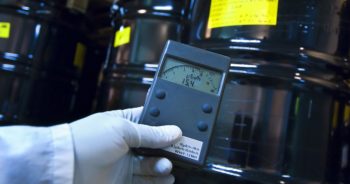
Radiation Protection Field Coordinator – Maintenance – Nuclear Energy Jobs
The Radiation Protection Field Coordinator in the nuclear energy sector plays a key role in managing and coordinating radiation protection activities during the operations and maintenance phases of nuclear facilities. He/She ensures strict compliance with radiological safety standards, plans interventions in controlled areas, and ensures adherence to regulatory requirements in close collaboration with technical, HSE teams, and regulatory bodies.
-

Lead Nuclear Reactor Operations Engineer – Maintenance – Nuclear Energy Jobs
The Lead Nuclear Reactor Operations Engineer is a highly qualified professional responsible for supervising and optimizing the operation of nuclear reactors, ensuring their performance, safety, and compliance with regulatory requirements.



